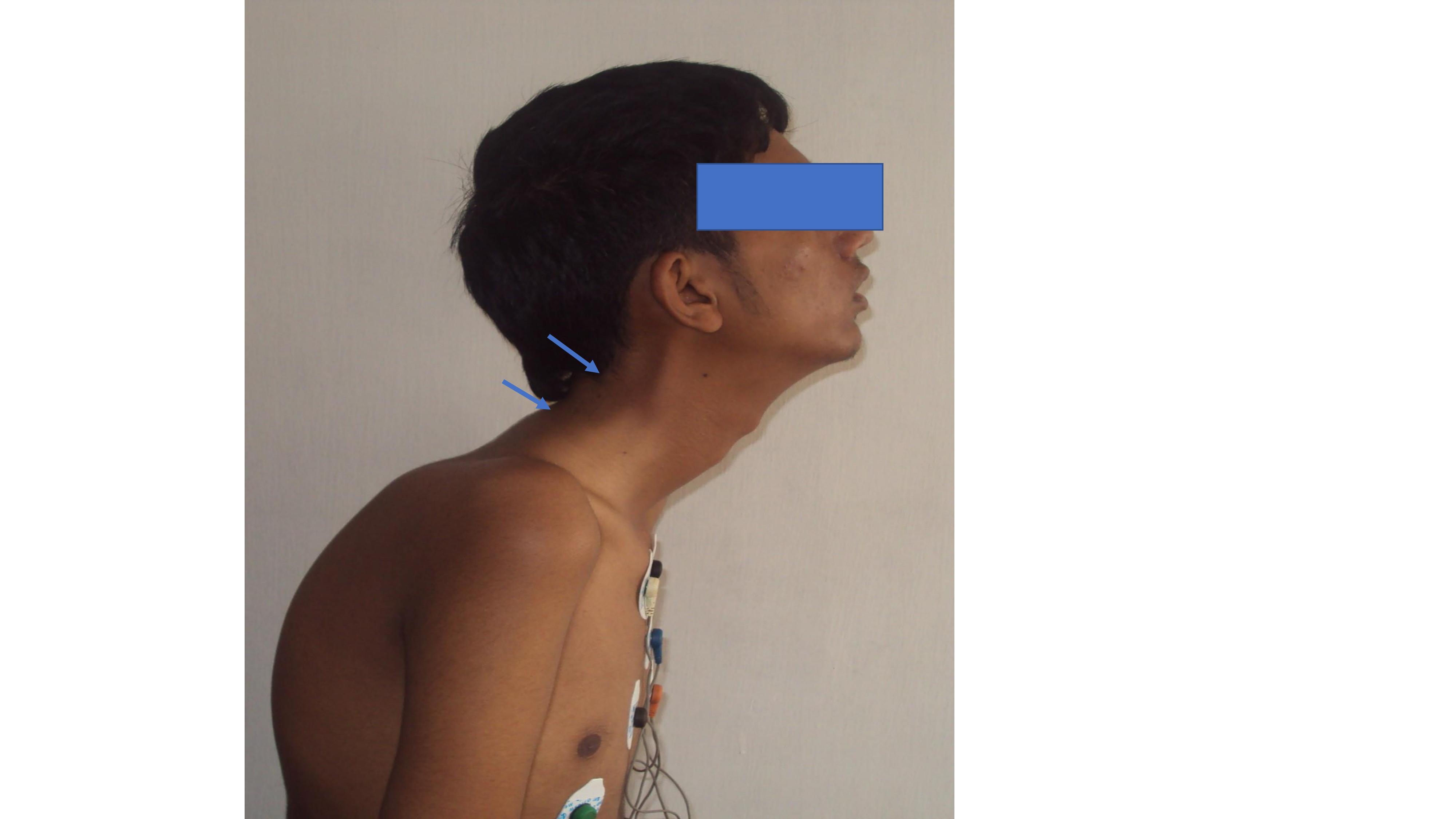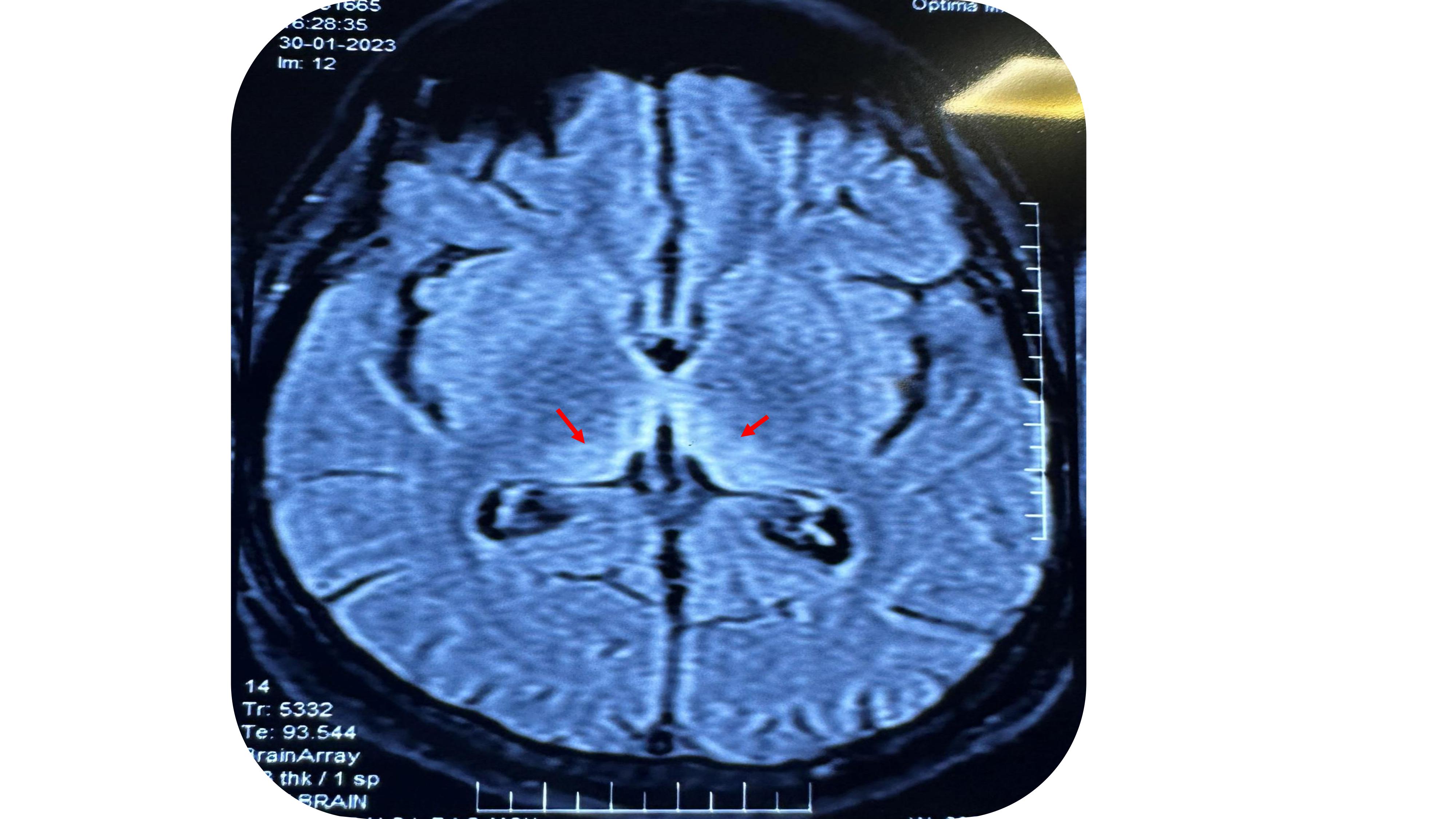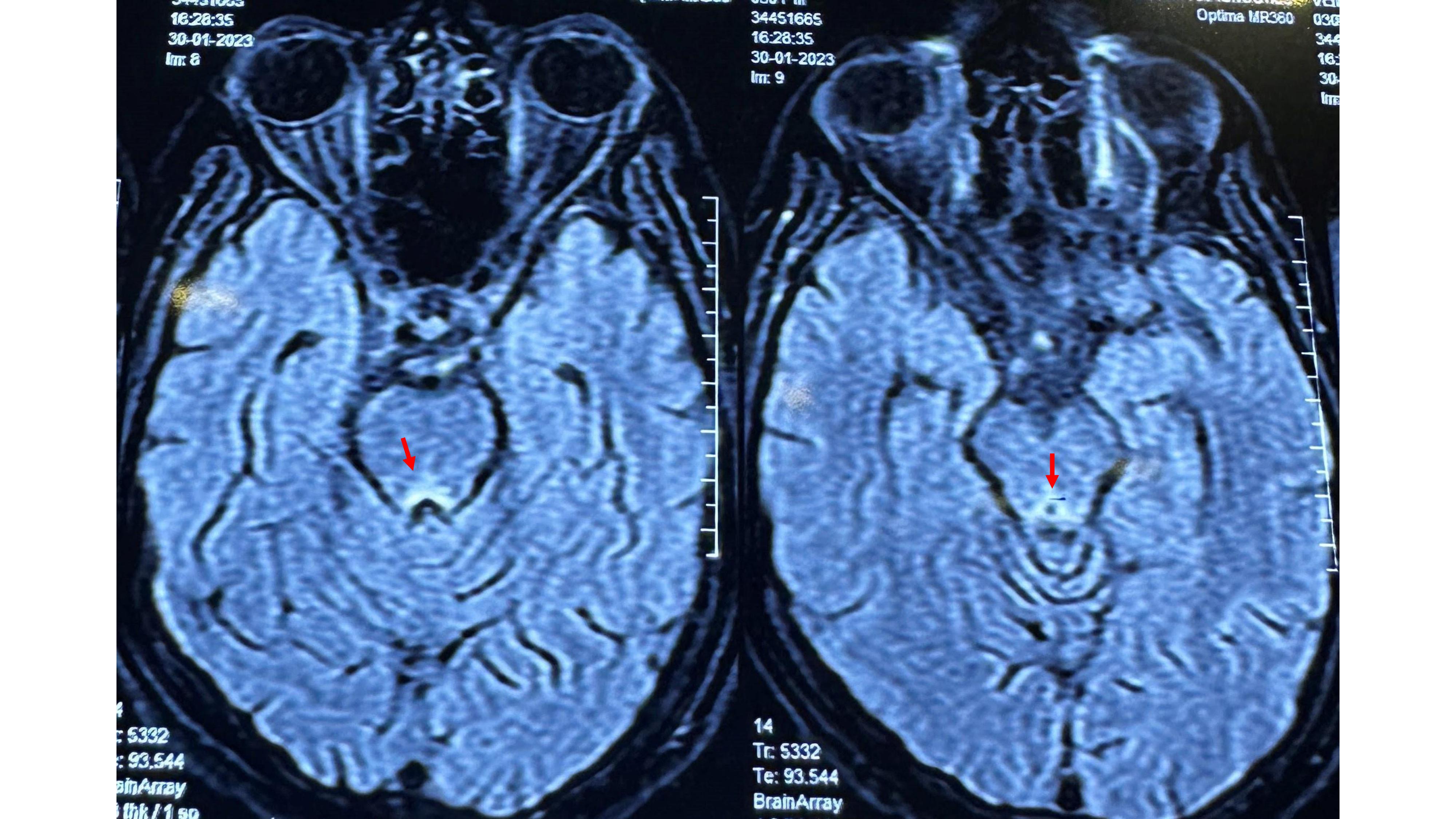Category: Dystonia: Pathophysiology, Imaging
Objective: To highlight the rare clinical presentation of cervical dystonia(sagittal shift) as a post Wernicke’s Encephalopathy sequelae.
Background: Wernicke’s encephalopathy (WE) is a neurological emergency with high morbidity and mortality.
It is classically associated with acute changes in mental status, associated ophthalmoplegia and ataxia. Vitamin B1 (Thiamine)deficiency was said to be responsible for WE. It is rare to have a movement disorder associated with/sequelae of WE[1]. To the best of our knowledge, there are 3 cases of a movement disorder reported in patients with WE. We report cervical dystonia in a patient of gastroduodenal ulcer, who underwent Gastro-Jejunostomy. He went on to develop WE in the postoperative period.
5 months after recovering from WE, he developed isolated cervical dystonia with sagittal shift [Figure 1]. Unlike in some of the previous similar cases, our patient did not develop dystonic tremors.
Method: Keyword searches in PubMed and other databases such as “cervical dystonia in WE”, “movement disorder with WE” showed 3 previous case reports having choreoathetosis, tremors and dystonia [2][3]. However, only one of the 3 case reports reported cervical dystonia along with dystonic tremors. The novelty of the case we are reporting highlights the presence of isolated cervical dystonia with sagittal shift in a post WE sequelae.
Results: Mammillary bodies, periaqueductal, locus coeruleus, thalamus and reticular formation are susceptible to damage from thiamine deficiency [Figure 2], [Figure 3]. Cerebello-thalamo-cortical & Cortico-striato-pallido-thalamo-cortical pathway lesions cause dystonia. Lesions in thalamus result in segmental, focal and hemi dystonia.
We believe that involvement of thalamus in the main cause of cervical dystonia in our case report.
Conclusion: Movement disorders are rare in a case of WE. Limb dystonia, choreoathetosis & cervical dystonia in combination with dystonic tremors are a known entity. Isolated cervical dystonia with sagittal shift in WE, most probably due to thalamic involvement, is a rare presentation we wish to highlight & report.
References: [1] Mahale RR, Patwardhan A, Mailankody P, Padmanabha H, Mathuranath PS. Delayed Cervical Dystonia with Tremors in a Patient with Wernicke Encephalopathy: An Expansion of Complication. Neurol India 2022; 70:1720-1
[2] Moodley R, Seebaran, RajputMC.Dystonia and choreoathetosis in Wernicke’s encephalopathy. A Case report. SAfrMed J 1989; 75:543‑4.
[3] Yoon JH, Yong SW, Yong SW, Lee PH. Dystonic hand tremor in a patient with Wernicke encephalopathy. Parkinsonism Relat Disord 2009; 15:479‑81.
To cite this abstract in AMA style:
V. Khardenavis, A. Deshpande. Cervical Dystonia as a post Wernicke’s Encephalopathy sequelae. [abstract]. Mov Disord. 2023; 38 (suppl 1). https://www.mdsabstracts.org/abstract/cervical-dystonia-as-a-post-wernickes-encephalopathy-sequelae/. Accessed April 26, 2025.« Back to 2023 International Congress
MDS Abstracts - https://www.mdsabstracts.org/abstract/cervical-dystonia-as-a-post-wernickes-encephalopathy-sequelae/



